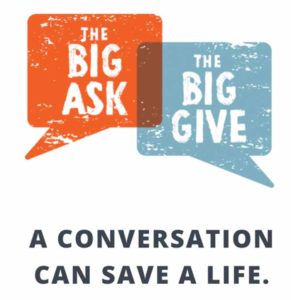So what is living donation? Basically kidneys that get donated to folks like me come from one of two places; a person who has just passed away with a healthy kidney or a still-living person who has very generously decided to part with one of their own kidneys to help someone else out.
Some wonder, if you can get a deceased donor kidney, why be in search of one from a living donor? – good question…
According to the National Kidney Foundation, kidney transplants performed from living donors may have several advantages compared to transplants performed from deceased donors:
- Some living donor transplants are done between family members who are genetically similar. A better genetic match lessens the risk of rejection.
- A kidney from a living donor usually functions immediately, because the kidney is out of the body for a very short time. Some deceased donor kidneys do not function immediately, and as a result, the patient may require dialysis until the kidney starts to function.
- Potential donors can be tested ahead of time to find the donor who is most compatible with the recipient. The transplant can take place at a time convenient for both the donor and recipient.
- A kidney from a living donor shortens time on the waiting list and opens up one more kidney from the list for someone else.
And what does a kidney donor or recipient look like? Just like everybody else because we are just like everybody else — and anyone’s kidneys can work well in anyone else’s body provided they are healthy and a blood match.
Some Kidney Donors and Recipients
The National Kidney Foundation has recorded some brief stories and interviews on their “The Big Ask” page. The story of Alan, Aisha and Facebook is one of many inspiring stories on this link that I suggest you take a look at. Take a minute to watch, listen and learn how giving a living kidney might be something that is totally within your ability to do.
Some things you should know about kidney donation:
- People can live normal lives with only one kidney. When the kidney is removed, the single normal kidney will increase in size to compensate for the loss of the donated kidney.
- Living donation does not change life expectancy, and does not appear to increase the risk of kidney failure. In general, most people with a single normal kidney have few or no problems.
- Your health insurance should not be affected by donation. The health insurance of the person receiving the kidney covers the donor as well.
- Should the donor someday later need a kidney, UNOS (United Network for Organ Sharing) policy gives priority on the transplant waiting list to living donors.

My Uncle John, recently passed away in his later eighties. He lived a long and health life with one kidney. My understanding of the story is, back when I was a child — or maybe even pre-me — doctors thought my uncle had kidney cancer and removed one of his kidneys. Turned out that he did not have kidney cancer, but obviously he was still going to live the rest of his life with just one kidney. Decades came and went and – so far as I know – it never inhibited him one bit in work or play. He was a wonderful person and I do miss him.

